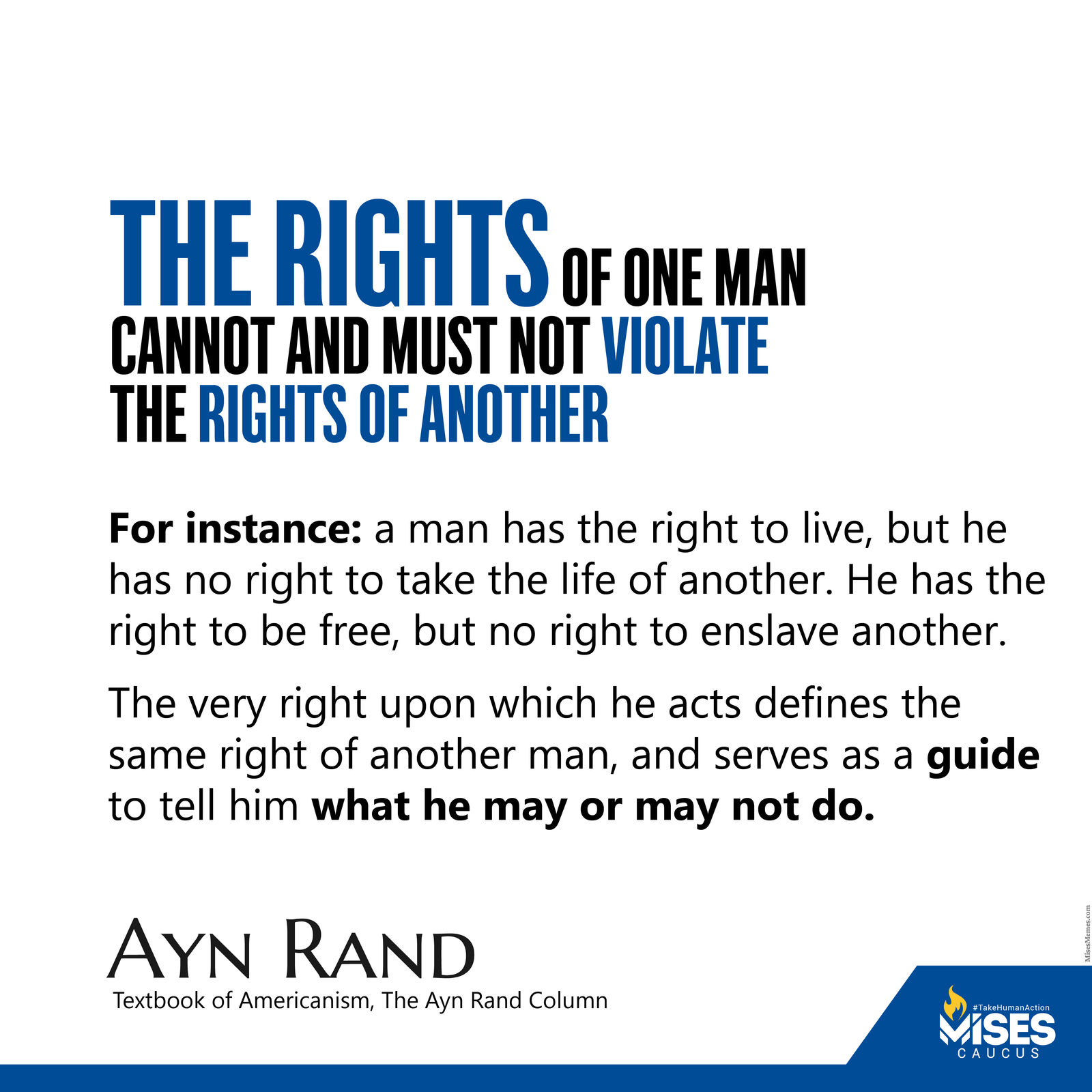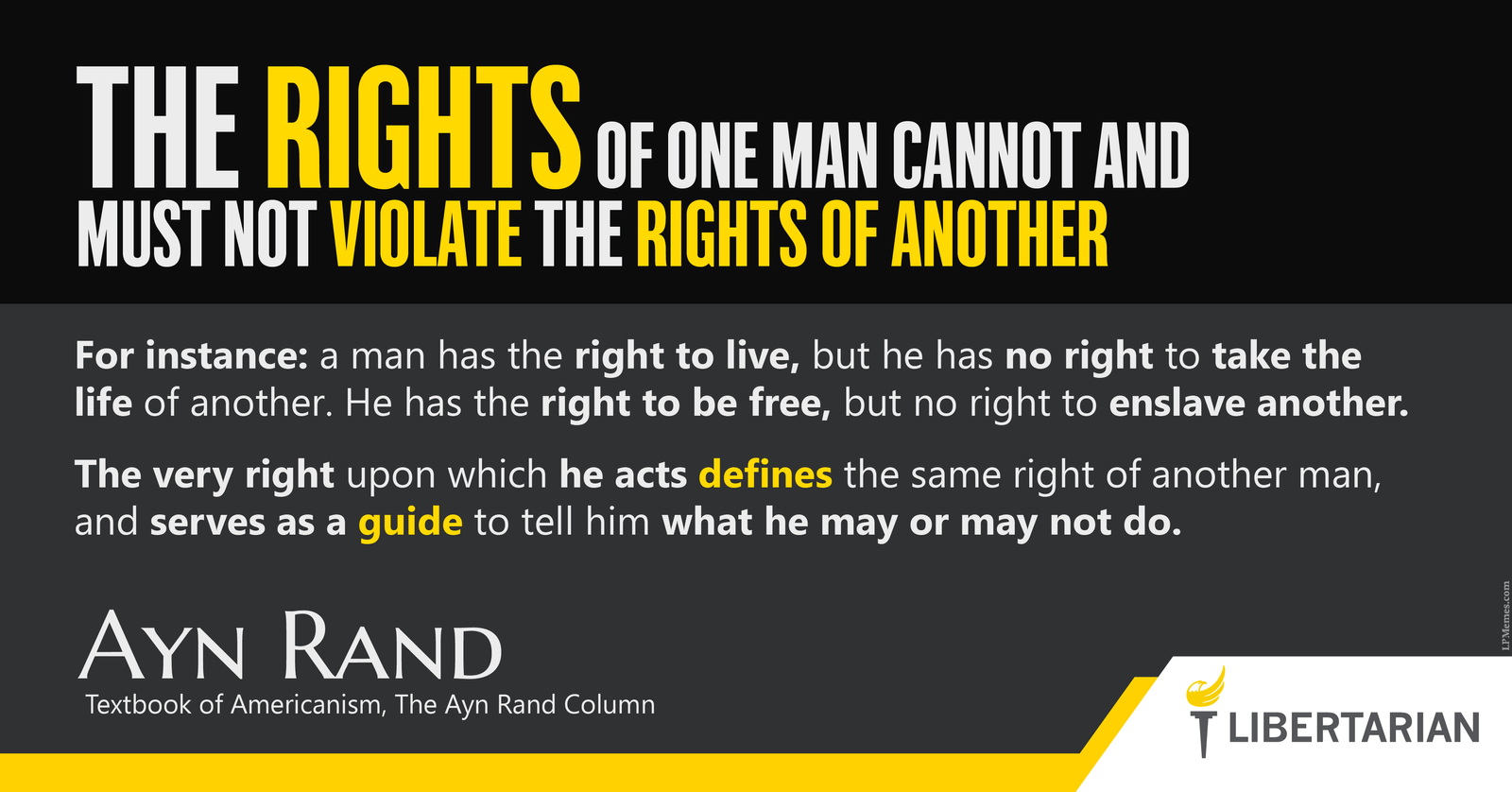The rights of one man cannot and must not violate the rights of another. For instance: a man has the right to live, but he has no right to take the life of another. He has the right to be free, but no right to enslave another.
The very right upon which he acts defines the same right of another man, and serves as a guide to tell him what he may or may not do. —Ayn Rand
1336: Ayn Rand – A Guide to Rights




Since Man has inalienable individual rights, this means that the same rights are held, individually, by every man, by all men, at all times. Therefore, the rights of one man cannot and must not violate the rights of another.
For instance: a man has the right to live, but he has no right to take the life of another. He has the right to be free, but no right to enslave another. He has the right to choose his own happiness, but no right to decide that his happiness lies in the misery (or murder or robbery or enslavement) of another. The very right upon which he acts defines the same right of another man, and serves as a guide to tell him what he may or may not do.